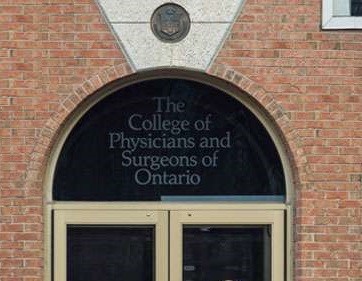News Release
For immediate release
Contact: APHA Media Relations, 202-777-3913
American Public Health Association
Due to the recent COVID-19 surge and the availability of safe and effective vaccines, our health care organizations and societies advocate that all health care and long-term care employers require their workers to receive the COVID-19 vaccine. This is the logical fulfillment of the ethical commitment of all health care workers to put patients as well as residents of long-term care facilities first and take all steps necessary to ensure their health and well-being.
Because of highly contagious variants, including the Delta variant, and significant numbers of unvaccinated people, COVID-19 cases, hospitalizations and deaths are once again rising throughout the United States.1 Vaccination is the primary way to put the pandemic behind us and avoid the return of stringent public health measures.
Unfortunately, many health care and long-term care personnel remain unvaccinated. As we move toward full FDA approval of the currently available vaccines, all health care workers should get vaccinated for their own health, and to protect their colleagues, families, residents of long-term care facilities and patients. This is especially necessary to protect those who are vulnerable, including unvaccinated children and the immunocompromised. Indeed, this is why many health care and long-term care organizations already require vaccinations for influenza, hepatitis B, and pertussis.
We call for all health care and long-term care employers to require their employees to be vaccinated against COVID-19.
We stand with the growing number of experts and institutions that support the requirement for universal vaccination of health workers.2,3 While we recognize some workers cannot be vaccinated because of identified medical reasons and should be exempted from a mandate, they constitute a small minority of all workers. Employers should consider any applicable state laws on a case-by-case basis.
Existing COVID-19 vaccine mandates have proven effective.4,5 Mandates are an essential policy to increase vaccination rates in health care and long-term care settings and protect the health care workforce and the patients and residents we serve. Simultaneously, we recognize the historical mistrust of health care institutions, including among many in our own health care workforce. We must continue to address workers’ concerns, engage with marginalized populations, and work with trusted messengers to improve vaccine acceptance.
As the health care community leads the way in requiring vaccines for our employees, we hope all other employers across the country will follow our lead and introduce effective policies to encourage vaccination. The health and safety of U.S. workers, families, communities, and the nation depends on it.
SIGNATORIES (listed alphabetically)
Academy of Managed Care Pharmacy
American Academy of Ambulatory Care Nursing
American Academy of Child and Adolescent Psychiatry
American Academy of Family Physicians
American Academy of Nursing
American Academy of Ophthalmology
American Academy of PAs
American Academy of Pediatrics
American Association of Allergy, Asthma & Immunology
American Association of Clinical Endocrinology
American Association of Colleges of Pharmacy
American Association of Neuroscience Nurses
American College of Clinical Pharmacy
American College of Physicians
American College of Preventive Medicine
American College of Surgeons
American Epilepsy Society
American Medical Association
American Nursing Association
American Pharmacists Association
American Psychiatric Association
American Public Health Association
American Society for Clinical Pathology
American Society for Radiation Oncology
American Society of Health-System Pharmacists
American Society of Hematology
American Society of Nephrology
American Thoracic Society
Association for Clinical Oncology
Association for Professionals in Infection Control and Epidemiology
Association of Academic Health Centers
Association of American Medical Colleges
Association of Rehabilitation Nurses
Council of Medical Specialty Societies
HIV Medicine Association
Infectious Disease Society of America
LeadingAge
National Association of Indian Nurses of America
National Association of Pediatric Nurse Practitioners
National Council of State Boards of Nursing
National Hispanic Medical Association
National League for Nursing
National Medical Association
National Pharmaceutical Association
Nurses Who Vaccinate
Organization for Associate Degree Nursing
Pediatric Infectious Diseases Society
Philippine Nurses Association of America, Inc
Society of Gynecological Oncology
Society for Healthcare Epidemiology of America
Society of Hospital Medicine
Society of Infectious Diseases Pharmacists
Society of Interventional Radiology
Texas Nurses Association
The John A. Hartford Foundation
Transcultural Nursing Society
Virgin Islands State Nurses Association
Wound, Ostomy, and Continence Nurses Society
REFERENCES
1. Centers for Disease Control and Prevention. Covid Data Tracker Weekly Review.
2. Weber, D., Al-Tawfiq, J., Babcock, H., Bryant, K., Drees, M., Elshaboury, R., et al. (2021). Multisociety Statement on COVID-19 Vaccination as a Condition of Employment for Healthcare Personnel. Infection Control & Hospital Epidemiology, 1-46. doi:10.1017/ice.2021.322
3. American Hospital Association. AHA Policy Statement on Mandatory COVID-19 Vaccination of Health Care Personnel
4. Hospitals in DC, across the nation follow Houston Methodist in requiring vaccination for workers (USA Today)
5. More Nursing Homes Are Requiring Staff COVID-19 Vaccinations (AARP)
###
The American Public Health Association champions the health of all people and all communities. We are the only organization that combines a nearly 150-year perspective, a broad-based member community and the ability to influence federal policy to improve the public’s health. Learn more at www.apha.org.
